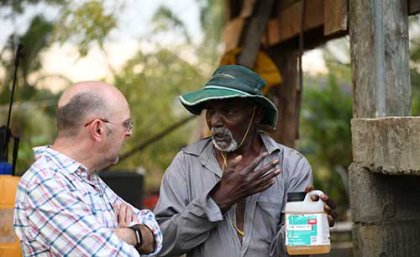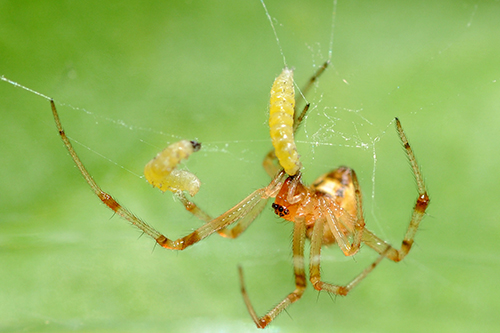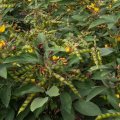
University of Queensland researchers will develop a program to help improve the livelihoods of farmers in the Pacific islands by tackling problems caused by pests and crop diseases.
The program is the keystone of a five year project funded by a $4.4 million grant from The Australian Centre for International Agricultural Research.
Dr Michael Furlong, an applied entomologist from UQ’s School of Biological Sciences, said developing sustainable solutions for farmers was vital.
“The project will work with Pacific island governments to promote biological control of insect pests as part of an overall approach to sustainable agriculture,” he said.
“The production of high-value fruit and vegetable crops free from unsafe agrochemicals is a priority in many Pacific island countries.
“These chemicals can be expensive and often have adverse effects on the environment and human health.
 “This grant gives us a real opportunity to help improve the livelihoods of farming families and their communities by significantly improving the ways in which crop pests and diseases are managed over the longer term.”
“This grant gives us a real opportunity to help improve the livelihoods of farming families and their communities by significantly improving the ways in which crop pests and diseases are managed over the longer term.”
The researchers will develop a regional ‘Plant Health Clinic’ program, which will train ministry and NGO extension staff to run clinics where farmers can have crop problems diagnosed and get advice on how to manage pests and diseases.
“This will increase the capacity of national ministries and help poor farmers deal with difficult production issues at a time when food security presents a serious problem,” Dr Furlong said.
UQ will partner on the project with regional organisation, Pacific Community, the agriculture ministries of Fiji, Samoa, Solomon Islands and Tonga and the National Agricultural Research Institute in Papua New Guinea.
Image above left by Michael Furlong: A spider eats a pest insect in a crop that has not been sprayed with synthetic pesticide. These predators are also important biological control agents of pests.
Media: Dr Michael Furlong, m.furlong@uq.edu.au, +61 418 159 762; Dominic Jarvis, Dominic.jarvis@uq.edu.au, +61 413 334 924.
.jpg)










